Homepage SEO Best Practices in 2026
May 20, 2025
Written by Casey Bjorkdahl

Casey Bjorkdahl is one of the pioneering thought leaders in the SEO community. In 2010, Casey co-founded Vazoola after working for a Digital Marketing Agency for five years in New York City. Vazoola is now one of the fastest growing and most widely recognized SEO marketing firms in the country.
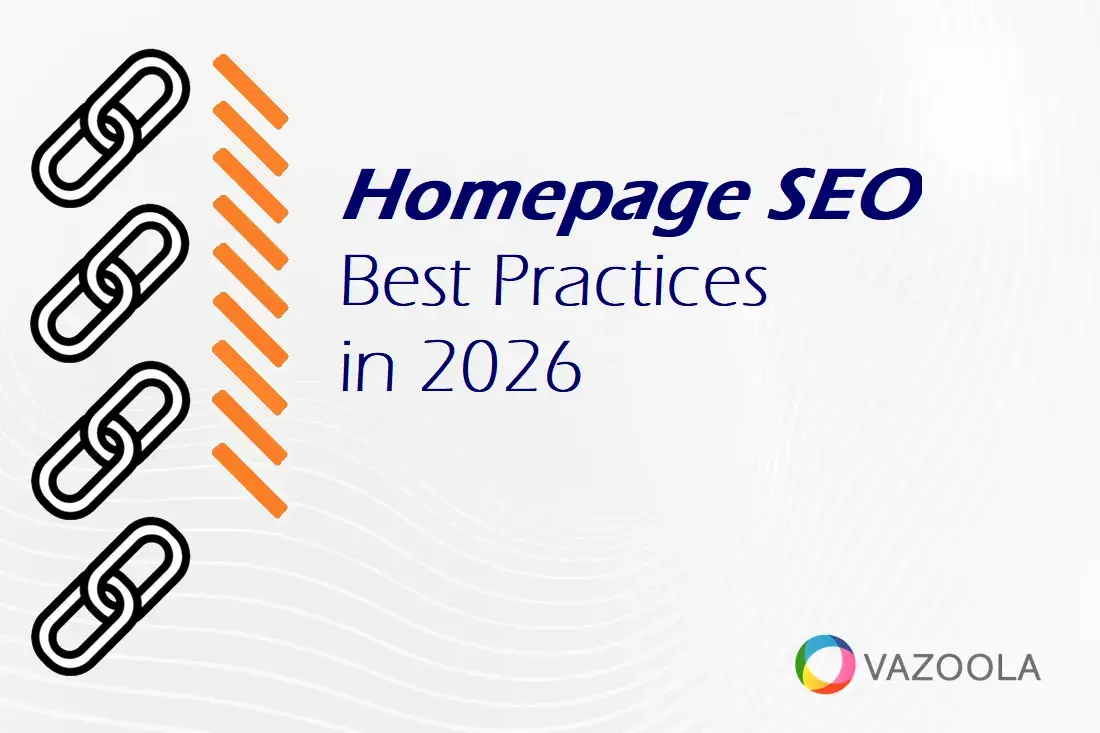
Are you hoping to boost your website’s visibility and attract potential customers? Then you absolutely must optimize your home page for search engines. A well-optimized homepage is after all a gateway to your website. It sets the stage for user engagement and conversions.
If you want to embrace a comprehensive approach to refine your homepage’s SEO, we’ve got all the best practices to help you meet user expectations and raise your Google rank.
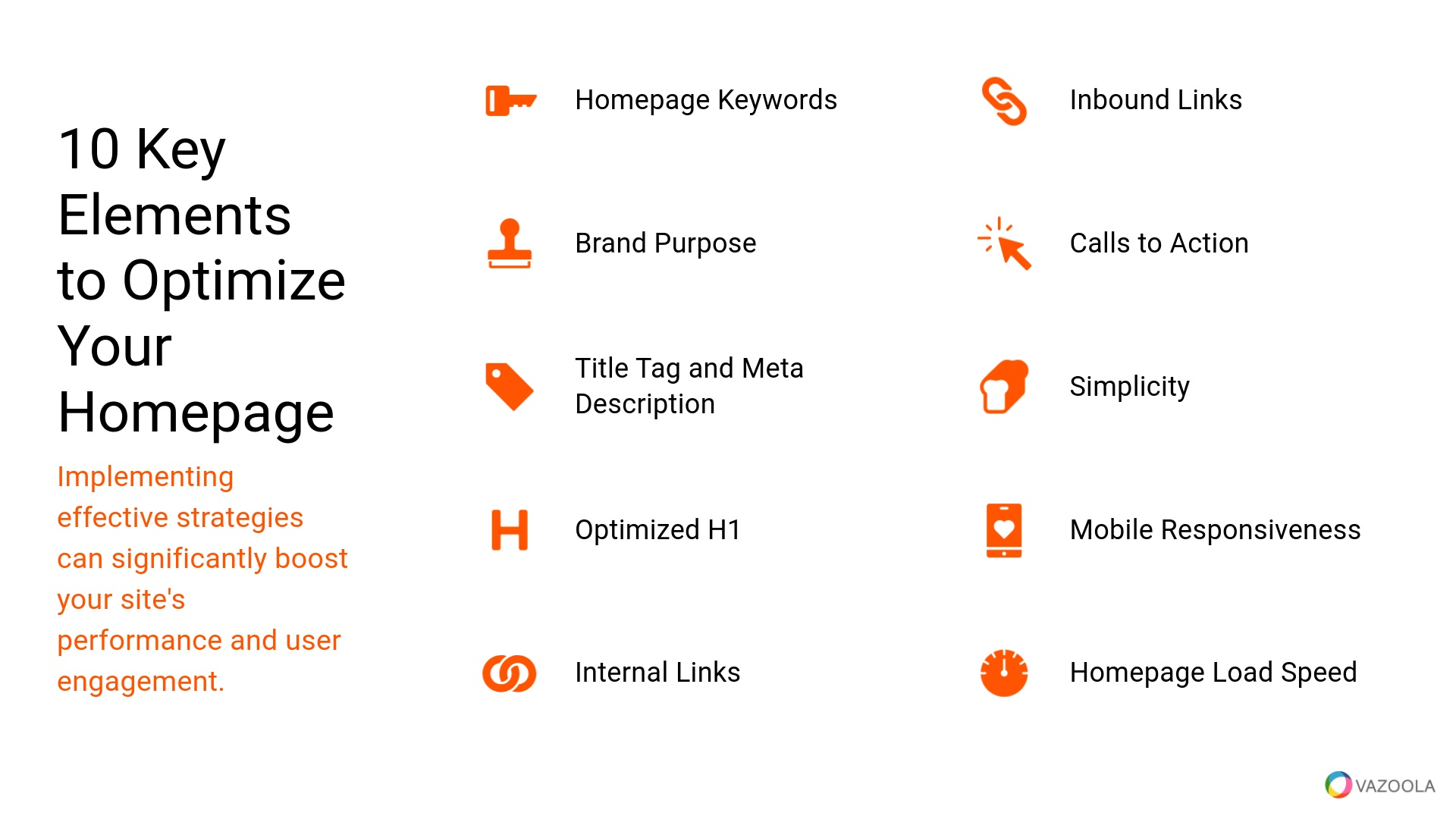
Key Takeaways
-
Understand the significance of homepage SEO in driving website traffic.
-
Implement actionable strategies to enhance homepage optimization.
-
Recognize the importance of user experience and content quality in SEO.
Table of Contents
10 Ways to Optimize Your Homepage
A well-structured homepage doesn’t only appeal to visitors. It also plays a pivotal role in search engine optimization. Implementing effective strategies can significantly boost your site's performance and user engagement.
1. Start with Homepage Keywords
Identifying and incorporating relevant keywords is foundational to homepage SEO. Your keywords should reflect your business offerings and align with terms your target audience is searching for.
If you want more insights into effective keyword research techniques, check out our Keyword Research Secrets from SEO Pros.
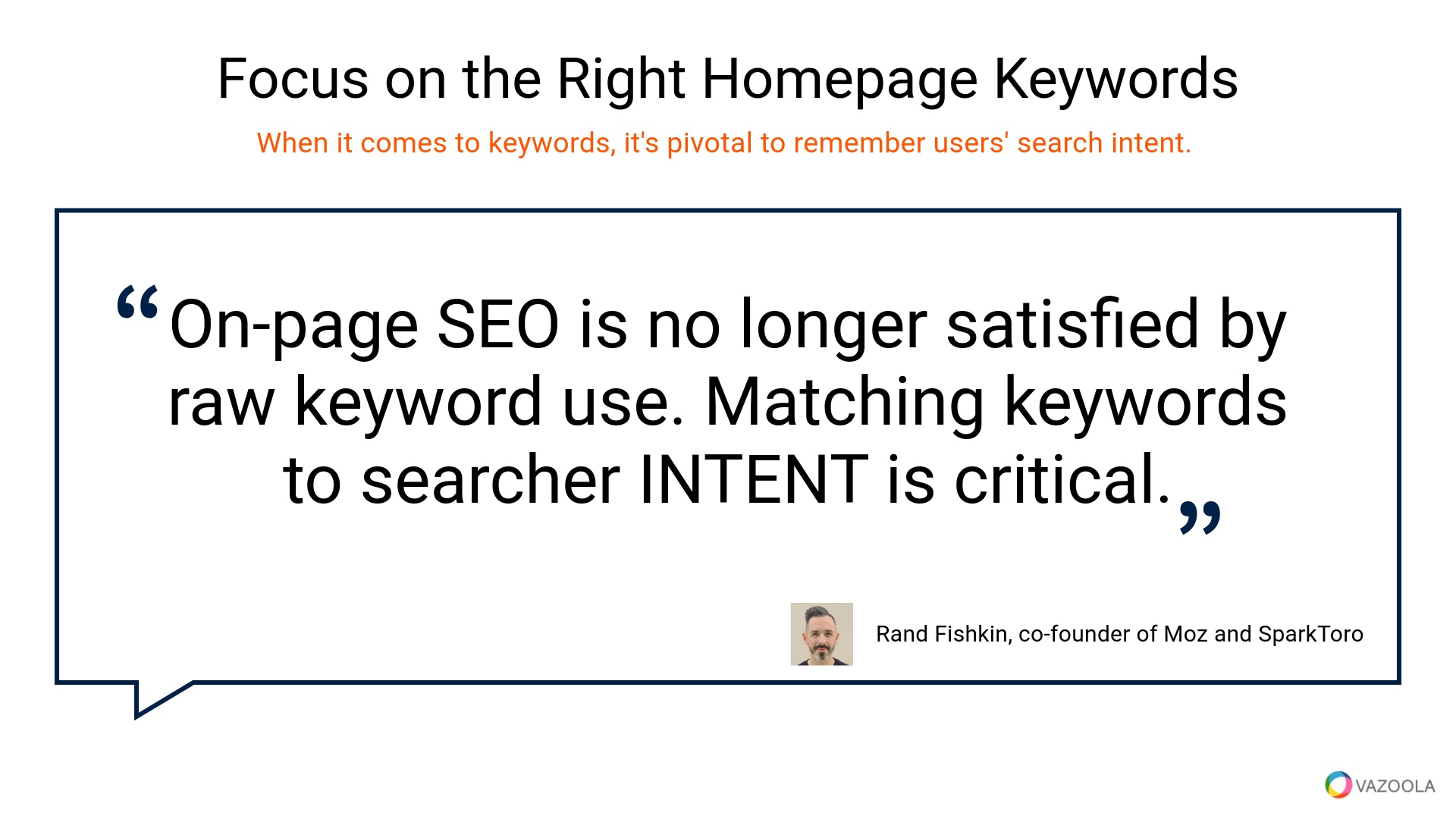
2. Clearly State Your Brand's Purpose
Your homepage should immediately convey who you are and what you offer. A clear, concise statement about your brand's mission and the services you offer helps visitors quickly understand your business and encourages them to explore further. This sort of clarity reduces bounce rates and enhances user engagement.
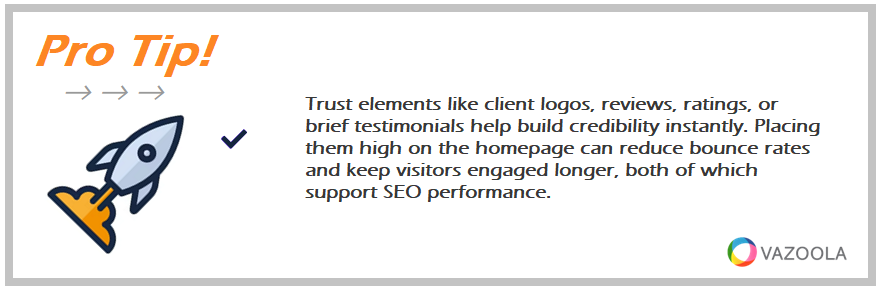
Trust elements like client logos, reviews, ratings, or brief testimonials help build credibility instantly. Placing them high on the homepage can reduce bounce rates and keep visitors engaged longer, both of which support SEO performance.
3. Optimize Title Tag and Meta Description
Craft compelling homepage SEO title tags and meta descriptions to help your website improve its click-through rates from search engine results. These elements should accurately summarize your homepage content and incorporate primary keywords.
For detailed guidance, including information to help you understand these key features, refer to our article, Title Tag: What Is It, and Why Does It Matter? You also can check out our Meta Description Best Practices.
4. Optimize Your H1
The H1 tag serves as the main heading of your homepage and should succinctly encapsulate the primary focus of your business. An effective H1 not only aids SEO but also reinforces your brand's purpose to visitors. Integrate relevant keywords into your H1 to further enhance your search engine visibility for improved homepage title SEO.
Vary your title tag and H1, so they aren’t echoing one another. For example, Vazoola’s home page title tag is: Vazoola | SEO, Backlinks, and Content Marketing. Our on-page H1 is: Quality Links At Scale, For Agencies. We strategized creating a click-worthy title tag for search results and a descriptive headline (H1) for the homepage itself.
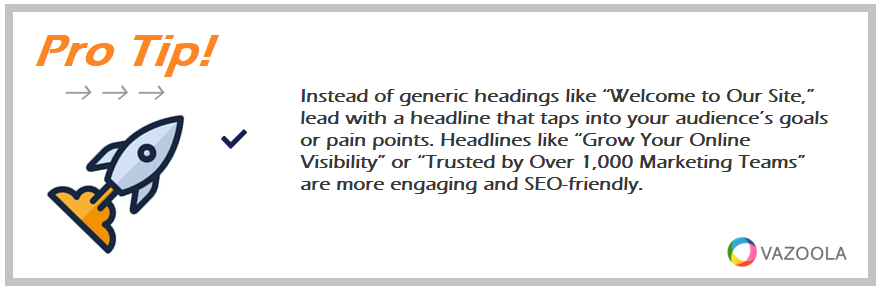
Instead of generic headings like “Welcome to Our Site,” lead with a headline that taps into your audience’s goals or pain points. Headlines like “Grow Your Online Visibility” or “Trusted by Over 1,000 Marketing Teams” are more engaging and SEO-friendly.
5. Internal Links to and from the Homepage
Incorporate internal links on your homepage to facilitate seamless navigation and distribute link equity throughout your site. Linking to key pages like product categories, services, and contact information enhances user experience and helps search engines understand your site's structure.
You also want to vary your anchor text for internal links.
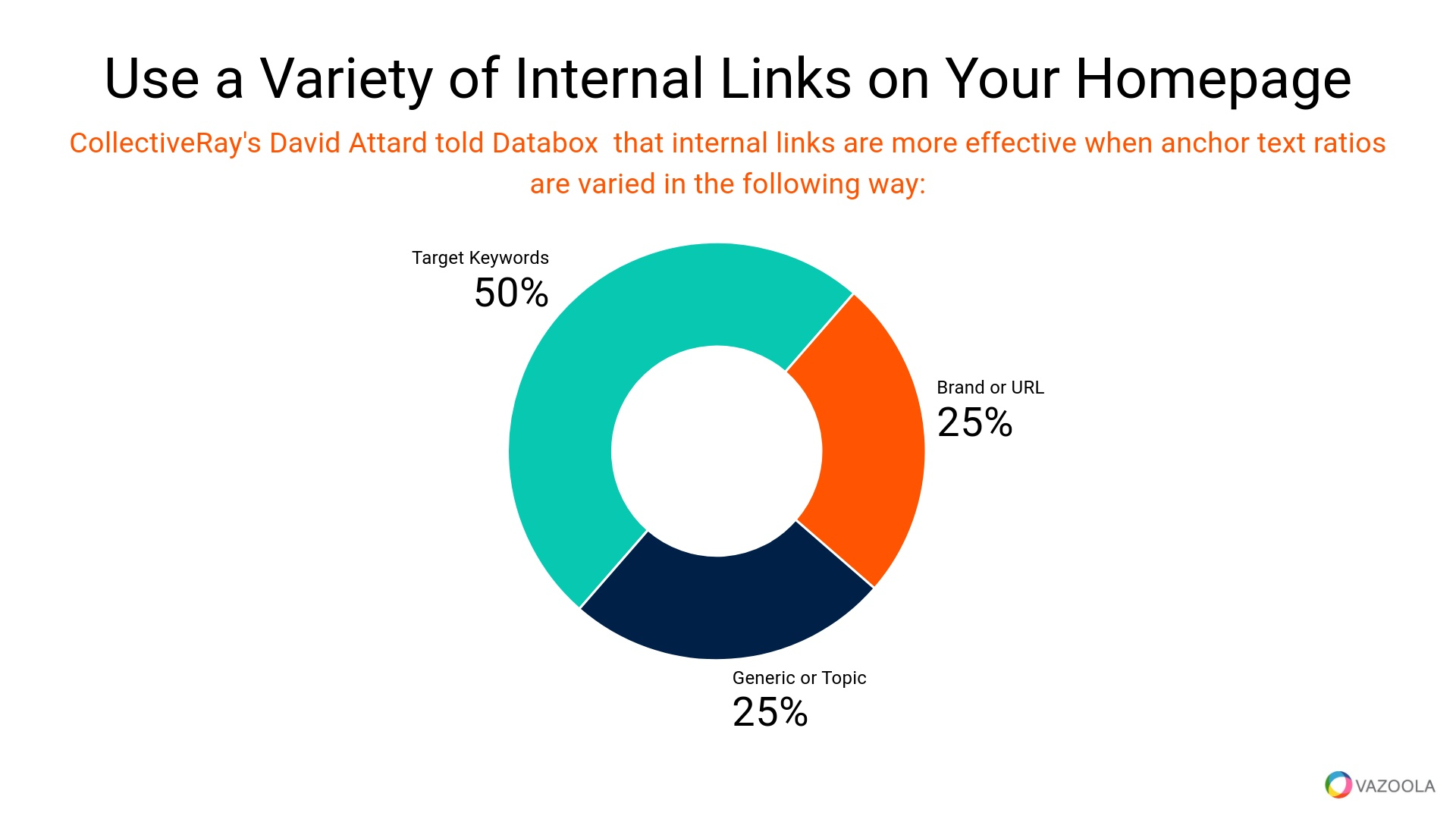
6. Build Links to the Homepage
Acquiring high-quality backlinks to your homepage increases domain authority and improves search rankings. By engaging in ethical link-building practices, including but not limited to guest blogging and partnerships, you can effectively generate these links.
For comprehensive strategies, explore our Ultimate Guide to Link Building.
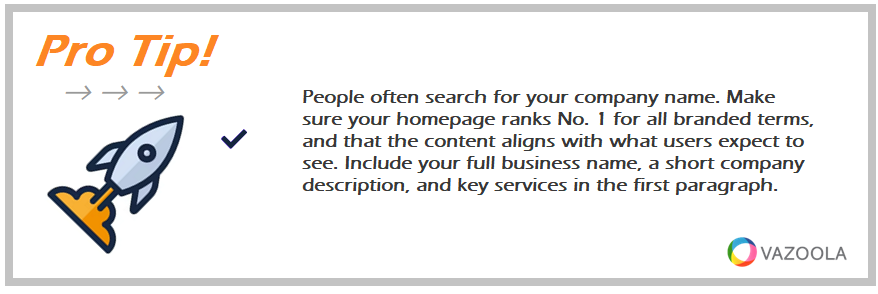
People often search for your company name. Make sure your homepage ranks No. 1 for all branded terms, and that the content aligns with what users expect to see. Include your full business name, a short company description, and key services in the first paragraph.
7. Include CTAs on Your Homepage
Clear and compelling calls-to-action guide visitors toward desired actions, such as signing up for newsletters, exploring products, or contacting your team. Try strategically placing CTAs to enhance both user engagement and conversion rates. Make sure your CTAs are prominently displayed and aligned with your business objectives.
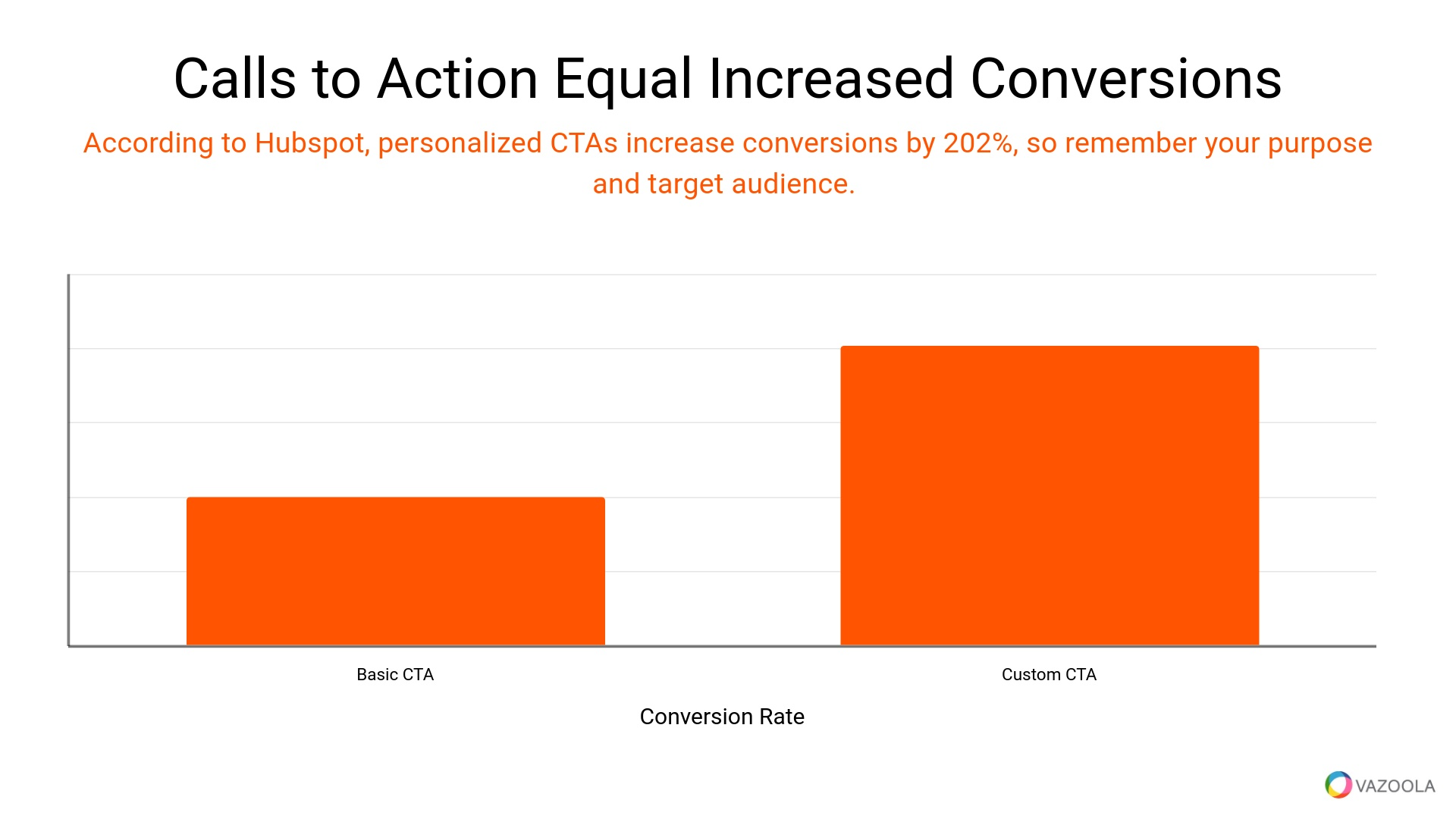
8. Keep Your Homepage Simple
A clutter-free homepage design promotes usability and directs focus toward essential elements. Simplify your homepage using ample white space, limiting the number of links, and prioritizing content that aligns with user intent. Simplicity is key to effective homepage design.
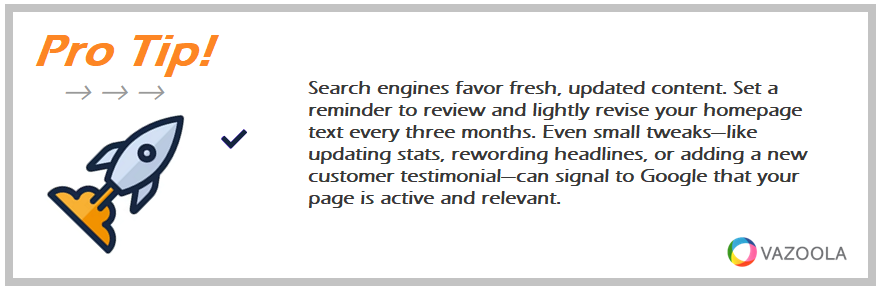
Search engines favor fresh, updated content. Set a reminder to review and lightly revise your homepage text every three months. Even small tweaks—like updating stats, rewording headlines, or adding a new customer testimonial—can signal to Google that your page is active and relevant.
9. Ensure Mobile Responsiveness
With a significant portion of web traffic originating from mobile devices, it’s imperative that your homepage is mobile-friendly. A responsive design adapts to various screen sizes, providing a consistent and user-friendly experience across devices.
Google's mobile-first indexing prioritizes mobile-optimized sites, so responsiveness is a critical SEO factor.
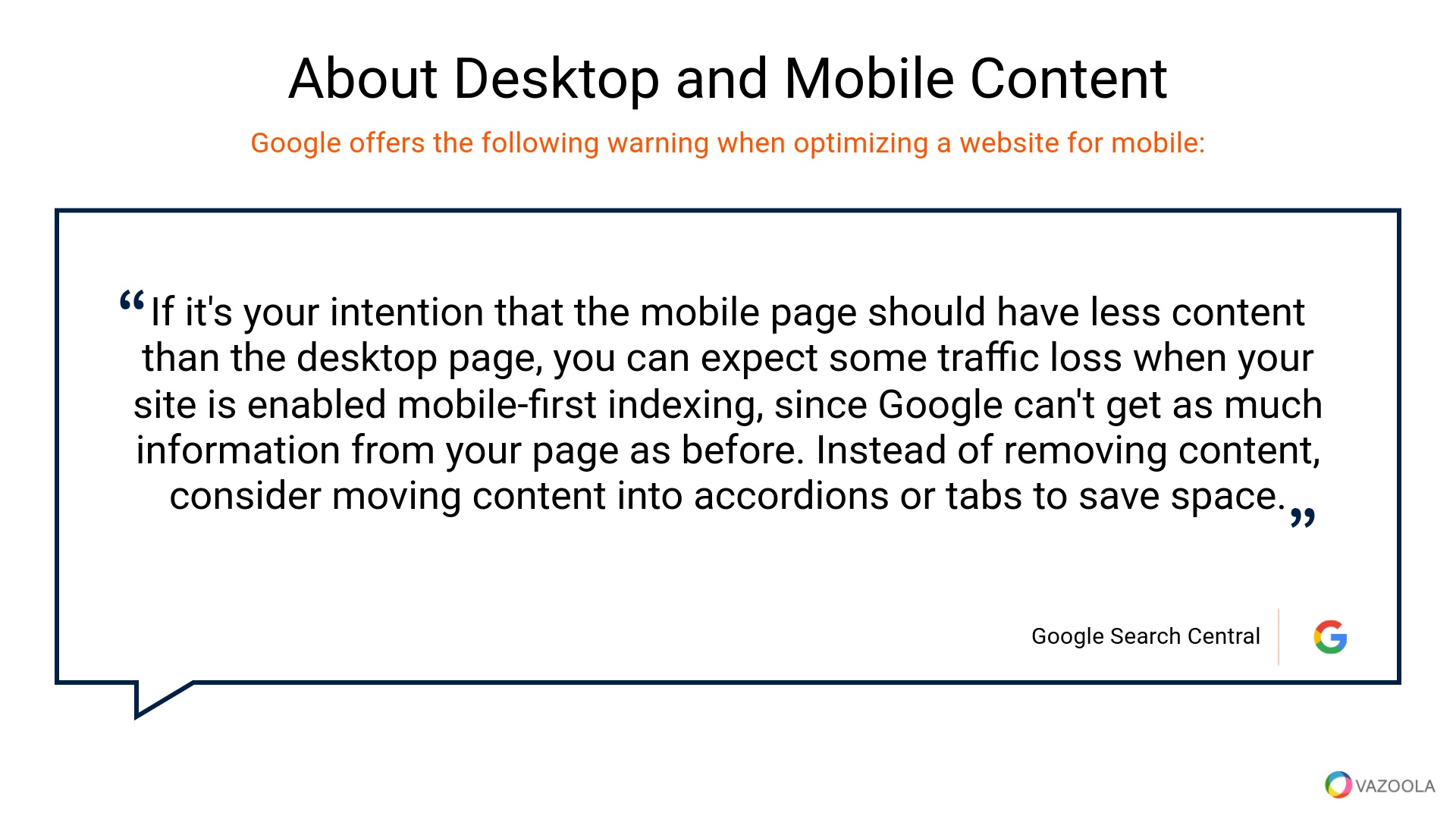
10. Enhance Home Page Load Speed
Page load speed directly impacts user experience and search engine rankings. Slow-loading homepages can lead to higher bounce rates and decreased engagement. By optimizing images, leveraging browser caching, and minimizing code, you can significantly improve load times.
Tools like Google's PageSpeed Insights can help identify areas for improvement.
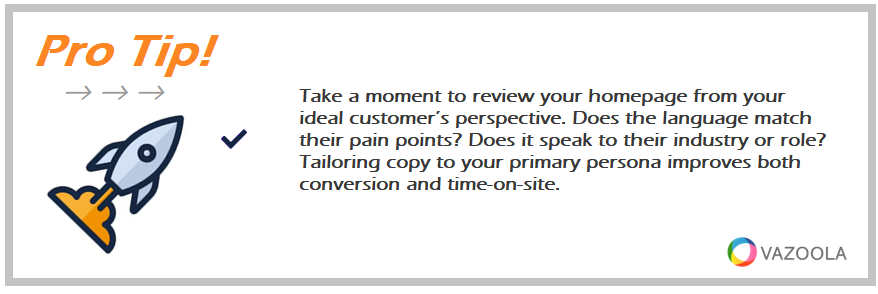
Take a moment to review your homepage from your ideal customer’s perspective. Does the language match their pain points? Does it speak to their industry or role? Tailoring copy to your primary persona improves both conversion and time-on-site.
Implement Homepage SEO Best Practices
Implementing these homepage SEO best practices can substantially improve your website's visibility, user engagement, and overall performance.
Regularly monitoring and updating your homepage ensures alignment with evolving SEO standards and user expectations. For personalized assistance to optimize your homepage and enhance your digital presence, consider partnering with Vazoola's expert team.
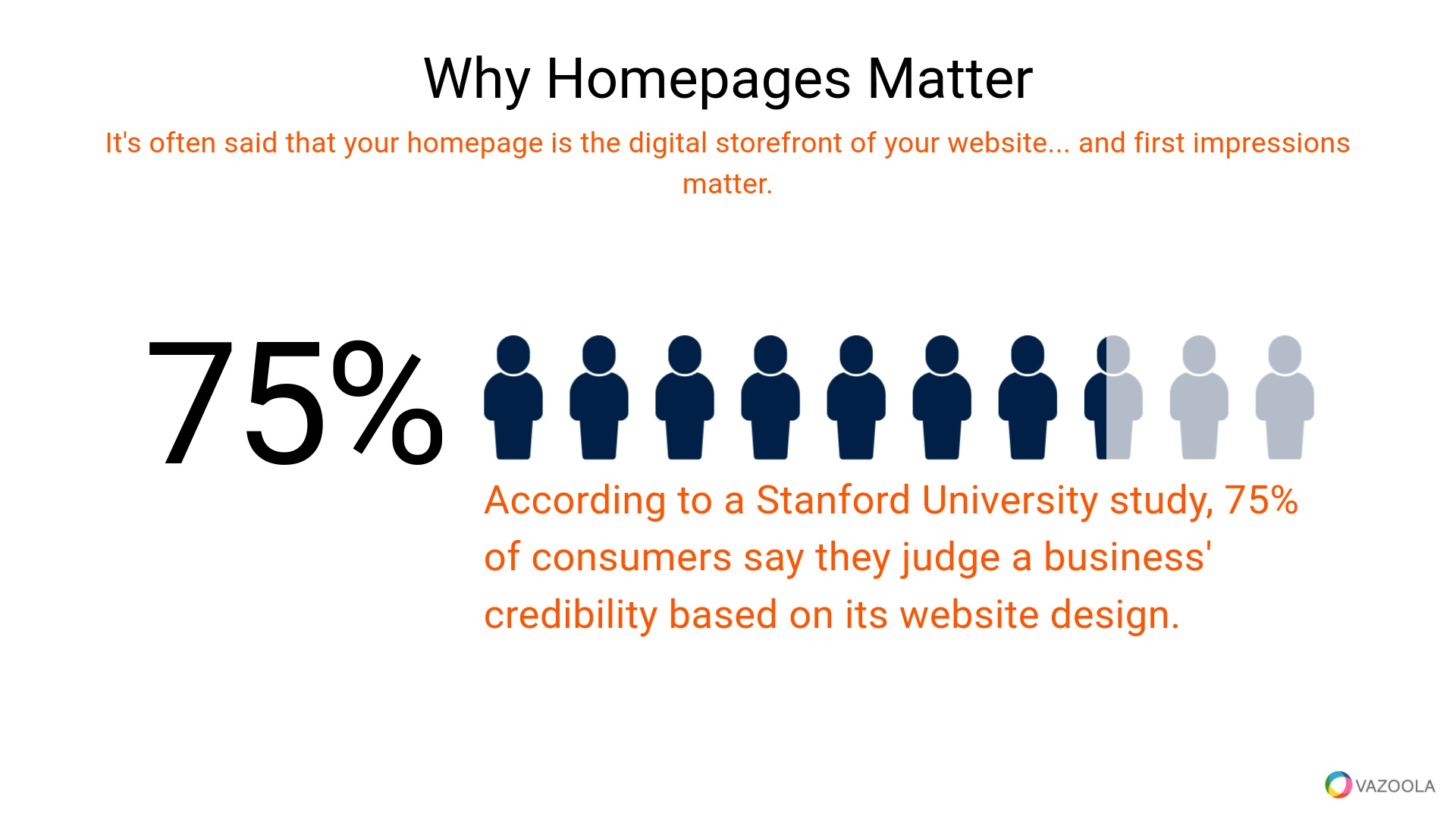
Contact Vazoola today to see how our agency can help yours!

